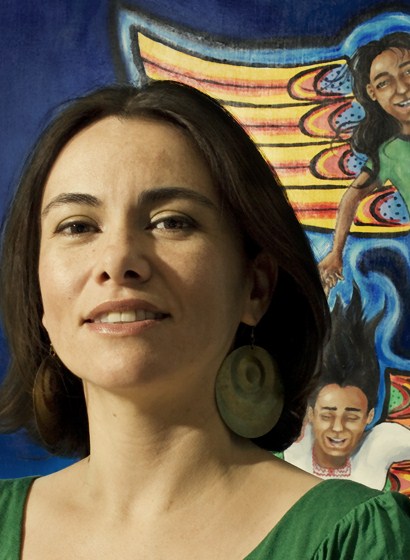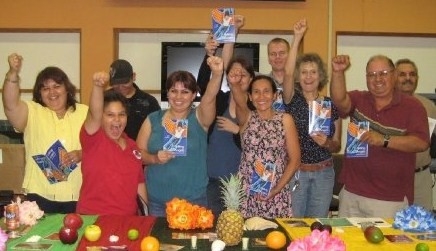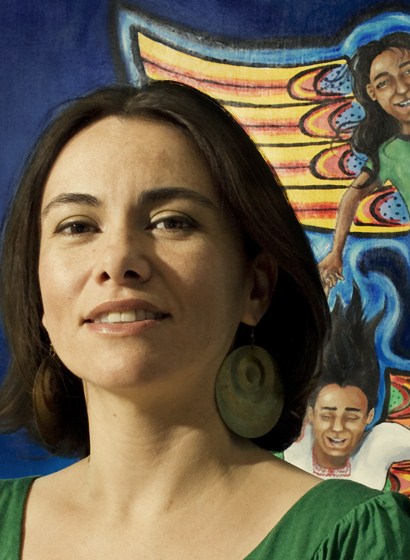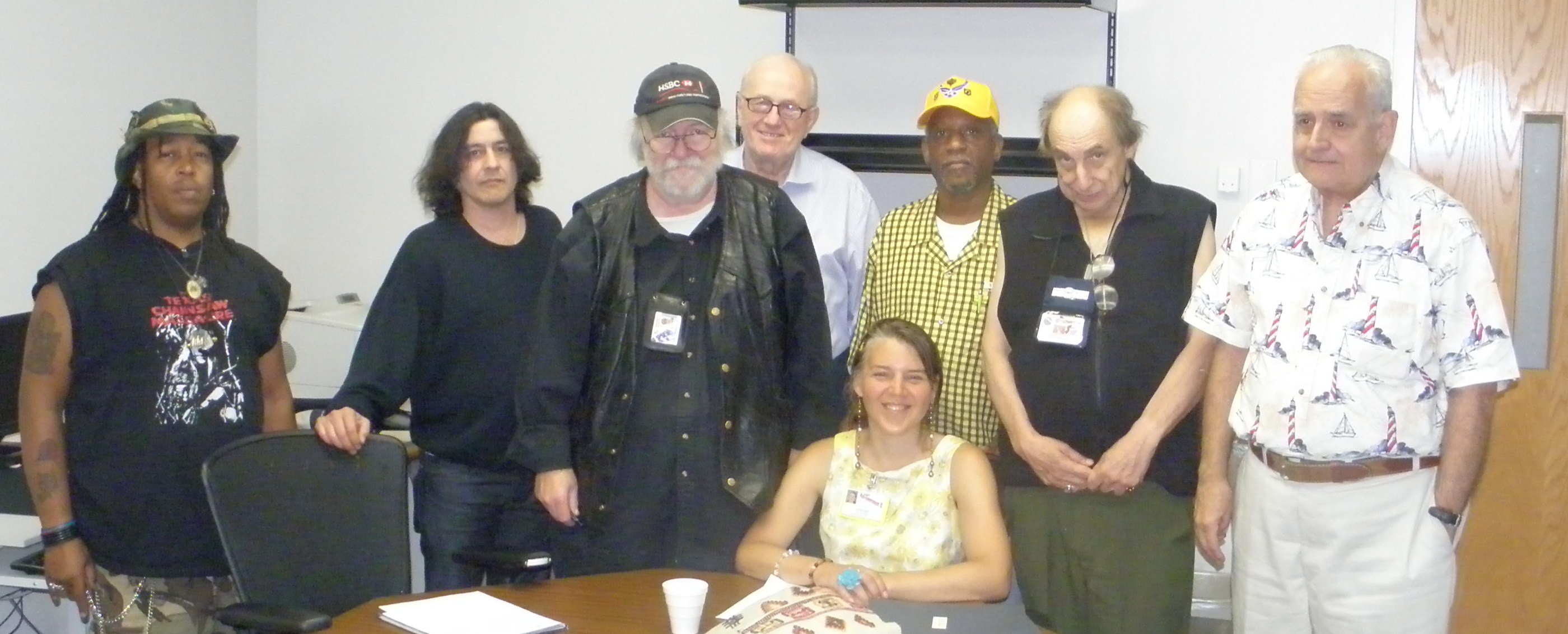For the month of July, poet Olga Garcia, author of Falling Angels: Cuentos y Poemas, blogs about her experience facilitating poetry workshops as a longtime P&W-supported writer.
It's May 2009 and the scorching sun casts long
shadows on the streets of downtown Calexico. I’ve driven 230 miles southeast of
Los Angeles, past the Salton
Sea, to arrive in this furnace of a city that boasts three-digit
temperatures. I’m here to facilitate an R/W-sponsored bilingual poetry workshop at Camarena
Library, and I’ve arrived early enough to explore.
 When it comes to border towns,
Calexico has it all: the U.S.-Mexico border you can walk up to, sniff,
stare at, curse, or cross; señores in sombreros and thick leather belts; big women
in church dresses, waving religious pamphlets in the air; a corner stop featuring
menudo, donuts, and border patrol agents. Sure, there’s a Starbucks, a few Walmarts,
but what tugs at me is the historic shopping district, the brick archways and
columns, the cement bus benches, and the discount stores.
When it comes to border towns,
Calexico has it all: the U.S.-Mexico border you can walk up to, sniff,
stare at, curse, or cross; señores in sombreros and thick leather belts; big women
in church dresses, waving religious pamphlets in the air; a corner stop featuring
menudo, donuts, and border patrol agents. Sure, there’s a Starbucks, a few Walmarts,
but what tugs at me is the historic shopping district, the brick archways and
columns, the cement bus benches, and the discount stores.
Hours later, I arrive at
Camarena Library, sweaty and a bit anxious. I’ve been teaching for twelve years, yet
I feel like a novice. The unknowns of a workshop always stir me. Who will come?
Adults? Teens? What language(s) will they speak? I’ve brought three different
handouts with me—English, Spanish, and bilingual. I don’t know which one I’ll
be using.
Ten minutes until workshop and
no one has arrived. Brief panic. Did I
ditch work to go sightseeing? I flashback to Calexico’s rustic downtown,
recalling its charm, the chilidogs I ate at a tiny stand and decide that
even if nobody shows, the trip was worth it.
They arrive. First a woman
and two men. Then a mother with her teenaged son. Within minutes I have a small
group curiously looking at the altar displayed on a table. I invite them to
pick up the objects—seashells, ripe fruits, pictures of birds in flight, bright-colored
plastic flowers purchased at one of Calexico’s fabulous discount stores.
 In our introductions I
learn that almost everyone is bilingual. Now I know what materials to use, what exercises to dive into. A workshop, though, is much more than a
pre-planned lesson. It’s a breathing thing with a collective pulse. Each class generates
its own unique energy. In Calexico, the group is intimate and quiet.
In our introductions I
learn that almost everyone is bilingual. Now I know what materials to use, what exercises to dive into. A workshop, though, is much more than a
pre-planned lesson. It’s a breathing thing with a collective pulse. Each class generates
its own unique energy. In Calexico, the group is intimate and quiet.
I feel the
need to chat before we begin. When I tell them I live in Los Angeles, they’re surprised at how far
I’ve traveled for this two-hour workshop. “I’ve wanted to visit Calexico for
years,” I tell them. They look at me like I’m crazy. I confess that having
grown up between two languages and cultures, I have a thing for border towns. I
relay my day’s adventures in downtown, how I snapped hundreds of photos and
interviewed residents on the streets as if I were a journalist. They
laugh, opening up, sharing a few of their own stories and insights about their
hometown. We delve into our poetry workshop like this, crossing borders...connecting.
Photos: (Top) Olga Garcia. Credit: Weenobee.com; (bottom) workshop participants. Credit: Olga Garcia.
Major support for Readings/Workshops events in California is provided by The James Irvine Foundation. Additional support comes from the Friends of Poets & Writers.





 Imagine a stampede of thirty teenagers who gravitate towards
the altar, handling radishes and jalapeños, asking “Are we gonna eat these?”
One spiky-haired kid quickly falls in love with a coconut. “Can I have this?
Please!? Please!?”
Imagine a stampede of thirty teenagers who gravitate towards
the altar, handling radishes and jalapeños, asking “Are we gonna eat these?”
One spiky-haired kid quickly falls in love with a coconut. “Can I have this?
Please!? Please!?” 
 When it comes to border towns,
Calexico has it all: the U.S.-Mexico border you can walk up to, sniff,
stare at, curse, or cross; señores in sombreros and thick leather belts; big women
in church dresses, waving religious pamphlets in the air; a corner stop featuring
menudo, donuts, and border patrol agents. Sure, there’s a Starbucks, a few Walmarts,
but what tugs at me is the historic shopping district, the brick archways and
columns, the cement bus benches, and the discount stores.
When it comes to border towns,
Calexico has it all: the U.S.-Mexico border you can walk up to, sniff,
stare at, curse, or cross; señores in sombreros and thick leather belts; big women
in church dresses, waving religious pamphlets in the air; a corner stop featuring
menudo, donuts, and border patrol agents. Sure, there’s a Starbucks, a few Walmarts,
but what tugs at me is the historic shopping district, the brick archways and
columns, the cement bus benches, and the discount stores.